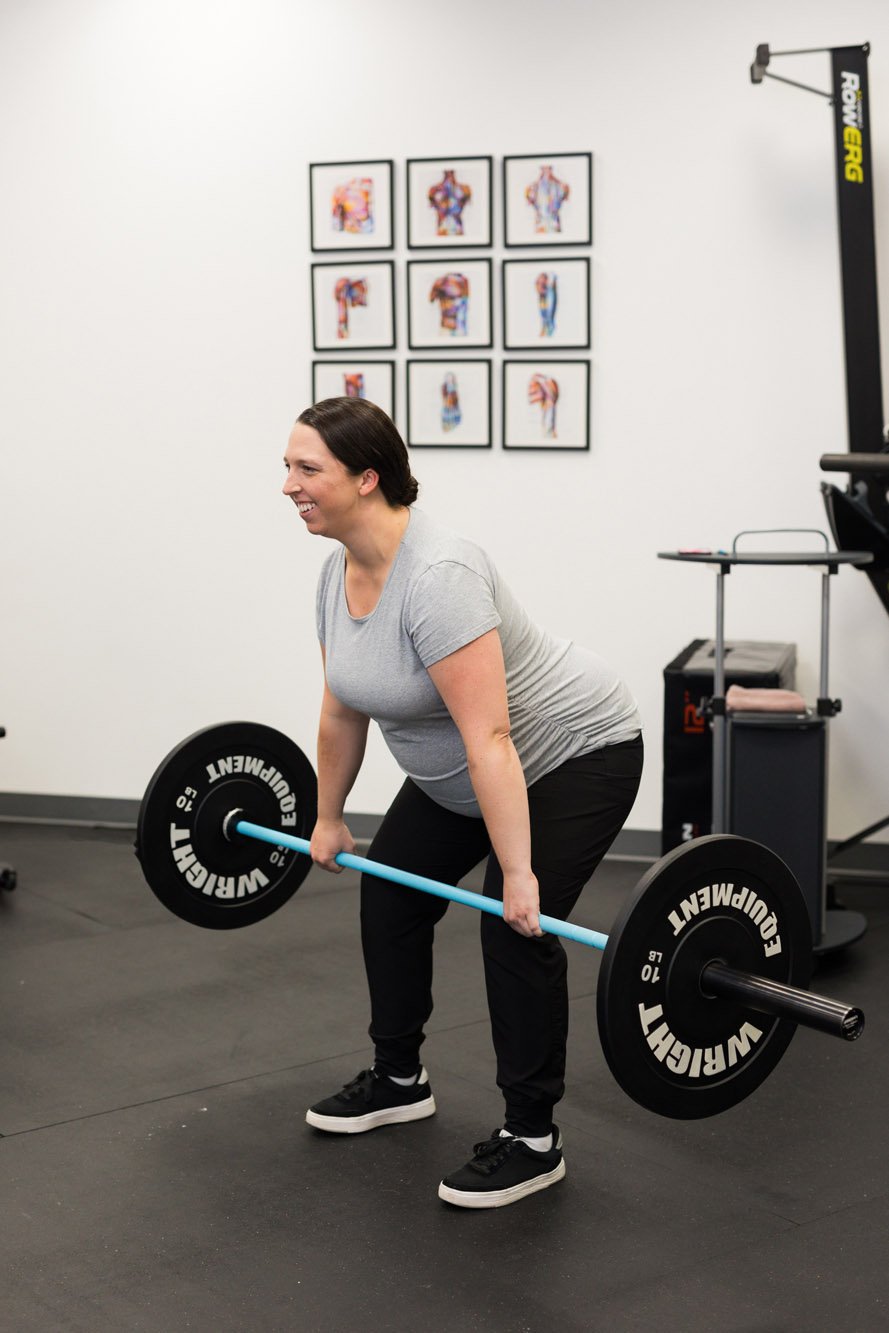
YOU ARE NOT ALONE
Pelvic Health by the Numbers
1 in 3
women experience bladder leakage
3 of 4
women will experience
pain with intercourse
in their lifetime
20%
of pediatrician visits are for incontinence
Up to 80%
of female athletes
leak urine
1 in 10
men will experience pelvic pain
What We Treat
Pelvic Floor & Related Conditions
Anorgasmia
Bowel and bladder control (incontinence)
Bladder pain and Interstitial Cystitis
Constipation
Core and pelvic floor weakness
Dyspareunia (pain with intercourse)
Endometriosis and Endometriosis surgery recovery
Fecal urgency and frequency
Hip and foot pain
Hemorrhoids
Headaches
Hysterectomy Recovery
Low back pain
Menopause and perimenopause
Pelvic Girdle Pain
Pelvic Pain
Pessary Fitting
Prolapse
Prolapse surgery recovery
Pubic bone pain (lightning crotch)
Pudendal Neuralgia
Rectal pain
Sacroiliac Joint Pain
Scar Adhesion (abdomen, pelvis, and breast)
Tailbone pain
TMJ (jaw) pain
Urinary urgency and frequency
Vaginismus
Vulvodynia
Pregnancy & Postpartum
Birth prep
Bladder and bowel control
Breastfeeding postures
Cesarean scar pain and complications
Core and Pelvic Floor weakness
Diastasis recti (abdominal separation)
Dyspareunia (pain with intercourse)
Headaches
Hip pain
Low back pain
Neck pain
Pelvic girdle pain
Perineal stretching
Rib pain
Sacroiliac joint pain
Scar adhesion
Sciatica
Shoulder pain
Symphysis Pubis pain (lightning crotch)
Tailbone pain
TMJ (jaw) pain
Upper back pain
Men’s Pelvic Health
Groin Pain
Rectal Pain
Penile, Scrotal or Testicular Pain
Chronic Nonbacterial Prostatitis
Constipation or Incomplete Bowel Movements
Pudendal Neuralgia
Post-prostatectomy Urinary or Sexual Symptoms
Painful Erection or Orgasm
Virtual Sessions
Whenever possible, we recommend in-person care for best practice, however, we understand that that is not always possible. Virtual sessions begin with a comprehensive interview that includes an overview of your history, concerns, and symptoms. This allows us to hear your story and understand your specific problems and goals. It’s important for us to get to the root of the problem, rather than simply treat your symptoms. We use this information to create an individualized, evidenced-based plan that may include a variety of treatments such as education, behavioral modification, and specific exercises. We will not ask to see your genitalia on a virtual session. Virtual sessions are 45 minutes in duration.
To learn more about pelvic telehealth for stress urinary incontinence, we recommend the following articles:
An exploration of the Efficacy of Telehealth in the Assessment and Management of Stress Urinary Incontinence among Women in Rural Locations.
Internet-based treatment of stress urinary incontinence: 1- and 2-year results of a randomized controlled trial with a focus on pelvic floor muscle training.
Non-face-to-face treatment of stress urinary incontinence: predictors of success after 1 year.



